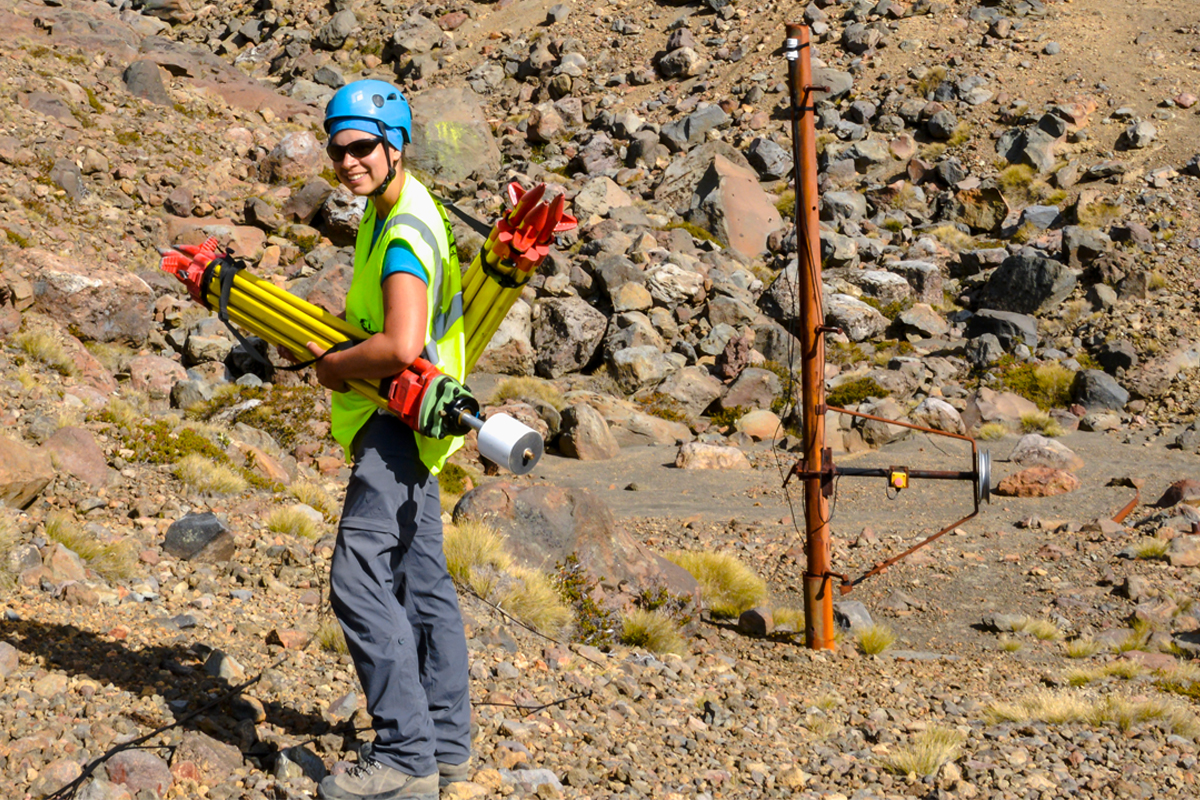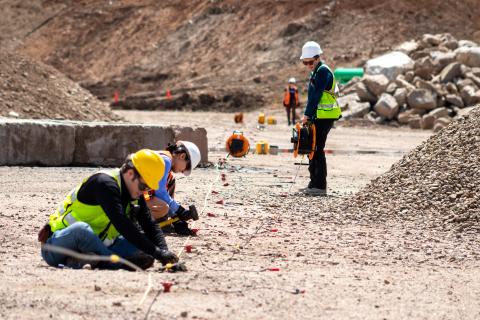All Categories
Featured
Table of Contents
Geologists And Geophysicists in Henley Brook WA 2023
Are you seeking the right type of b-school? Link with MBA programs looking for prospects like you. Check out schools of all sizes, ranked colleges, city and big-campus schools and more. Apply. Pay. Prep. Research study. Be successful. We've got you covered. Connect with master's programs around the country to get an edge over the competitors.

A geophysicist studies numerous elements of the earth. According to the U.S. Geological Study, they study gravity, magnetic, electrical, and seismic activity events. Geophysicists also document, examine, and take measurements of geographic functions and anomalies. View a video to discover what a geophysicist: Geophysicists need to make a minimum of a bachelor's degree; however, this is for an entry-level position.
If you desire research you must pursue a Ph. D. Undergraduate coursework generally includes geology, mathematics, ecological science, or physics. Advanced degrees need more specific studies in the specialty of choice. Areas can include oceanography, atmospheric physics, climatology, planetary, petroleum, environmental, and mining. Job potential customers are higher if you have a strong background in computer technology or technology.
Course: Basics In Geophysical Surveying in The Vines Australia 2021
Access to these chances might be restricted depending upon where you live; nevertheless, internships or summer season programs with geophysical companies, university geophysics department, or the U.S. Geological Study can be alternatives. You can discover a list of a list of opportunities on the United States Geological Study (USGS) websites' Path Programs tab (opens in another link).
Geophysicists also work with computer systems while researching, so computer system courses can also be helpful, as pointed out earlier in this post. Numerous geophysicists specialize in an area of geophysics.
A geophysicist's responsibilities can include measuring, tracking, and recording data from different physical homes in the world. They likewise examine and examination info received. Geophysicists frequently have to take a trip worldwide to take a look at geological occasions that have occurred or might have been forecasted. Geophysics is a research-based profession field, therefore one need to have the capability to hypothesize, problem-solve, and question or difficulty previously held presumptions from their gathered data.
What Does A Geophysical Data Technician Do? in West Leederville Australia 2021
Jay Wellik, a geophysicist, research studies volcanos. His area of proficiency in geophysics is investigating why volcanos appear and what indicators there might be that an eruption might occur. He tracks seismic activity and then follows what takes place before, throughout, and after a volcano appears. Geophysicists generally work full-time hours; however, they typically work irregular hours, as pointed out previously.

You can find extra details about Geophysicists along with extra instructional materials on the U.S. Geological Study site (links open in a new window). Laura Stern, of the U.S. Geological Study at the Gas Hydrates Lab in Menlo Park, California: We make a number of various hydrates in the laboratory.
We likewise make carbon dioxide hydrate, ethane hydrate, gas, a number of different structures. It's about 100 degrees colder than the temperature at which these hydrate samples would dissociate, when they would break down to ice plus gas on the tabletop.
Geophysical Surveys in Mirrabooka Western Australia 2021
The samples we make, their polycrystalline. They look like snow, it appears like compressed snow however truthfully, it does contain gas inside. Take a little piece off here and as it heats up, you'll start to see it pop. It's going back to ice plus gas and then as the ice would melt as it continues to warm, it will wind up being water plus gas.
My name is Steve Kirby, I'm a Geophysicist here at the U.S. Geological Survey in Menlo Park. I work with Laura Stern who is likewise a Geophysicist in this laboratory that adheres towards the investigation of planetary ices and gas hydrates. Gas hydrates in nature happen in very remote locations and they are really complicated with the interactions and conditions that they form under and samples that are raised are under some sort of alternation or decomposition.
This is an uncommon laboratory and there are just a handful of them worldwide and we are very lucky to be here at the Geological Survey and to have the chance of dealing with them. Bureau of Labor Stats, U.S. Department of Labor, Occupational Outlook Handbook, Geoscientists. National Center for O * Web Advancement.
Geophysicist in Two Rocks Australia 2021
This video was produced by the federal government for the U.S. Geological Study. The USGS Gas Hydrates Laboratory is funded by the Department of Energy and the USGS Gas Hydrates Task.
Table of Contents
Latest Posts
Geophysical Survey - Mining Fundamentals in Mahogany Creek Aus 2023
How To Become A Geophysicist in South Fremantle Oz 2022
Field Geophysicist - Parsons Careers – Engineered Systems in Ballajura Aus 2021
More
Latest Posts
Geophysical Survey - Mining Fundamentals in Mahogany Creek Aus 2023
How To Become A Geophysicist in South Fremantle Oz 2022
Field Geophysicist - Parsons Careers – Engineered Systems in Ballajura Aus 2021